Significance of Labor Day
- Peacemaker Coffee Company

- Aug 29
- 4 min read
Updated: Aug 30
Labor Day, celebrated on the first Monday of September, holds special meaning in the United States. It honors the contributions of American workers and reminds us of the labor movement's history and its ongoing fight for workers' rights. This post explores the origins of Labor Day, its evolution, and its vital role in advocating for workers' rights in the USA.
Significance of Labor Day
The Origins of Labor Day
Labor Day has deep roots in the labor movement of the late 19th century, when workers actively fought for better conditions, fair wages, and reasonable hours. The first Labor Day celebration was held on September 5, 1882, in New York City, led by the Central Labor Union. This event was not just a party; it was a critical demonstration showing solidarity among workers who demanded change.
Choosing September for the celebration was strategic, as it fell between Independence Day and Thanksgiving, allowing families to enjoy a long weekend. By 1894, Labor Day was designated a federal holiday thanks to the efforts of labor leaders and the political climate, which was becoming more supportive of workers' rights. A survey indicates that nearly 80% of Americans celebrate Labor Day, reflecting its significance in American culture.

The Evolution of Labor Day Celebrations
Over the years, Labor Day has shifted from a day of activism to a holiday often linked with barbecues, picnics, and the unofficial end of summer. However, the spirit of honoring workers remains strong. Cities across the nation still host Labor Day parades, showcasing union members and local businesses. For example, Chicago boasts one of the largest Labor Day events, attracting over 100,000 attendees who gather to celebrate and advocate for workers' rights.
These events provide a platform for workers, enabling them to voice their concerns and celebrate their achievements. The festive atmosphere is a backdrop to the serious messages of solidarity and activism that still resonate today. Significance of Labor Day
Labor Day and Workers' Rights
Labor Day signifies more than just a day off. It represents the ongoing struggle for workers' rights in the United States. The labor movement has achieved notable victories, including the establishment of the eight-hour workday, a federal minimum wage of $7.25 per hour, and significant workplace safety regulations. Statistics show that OSHA regulations have led to a 65% decrease in workplace fatalities since their inception.
Despite these successes, challenges persist. Wage stagnation affects 80% of American workers, and job security remains elusive in various sectors. The gig economy, which includes roughly 36% of U.S. workers, presents new challenges, highlighting the need for continued advocacy and reform. Labor Day serves as a crucial reminder of the necessity for collective action to protect workers' rights.

The Role of Unions in Labor Day
Unions have been pivotal in the labor movement and the creation of Labor Day as a national holiday. They advocate for workers' rights, negotiate for better wages, and ensure safe working conditions. By providing a collective voice, unions empower workers to stand against injustices.
On Labor Day, many unions organize events that raise awareness about current issues. These gatherings celebrate past achievements while highlighting ongoing challenges. Union leaders often take this opportunity to address pressing concerns and rally support for future initiatives. For instance, in 2021, the AFL-CIO reported that unionized workers earn 20% more than their non-union counterparts, illustrating the value unions bring to the workforce.
The Impact of Labor Day on Modern Workers
In today's dynamic economy, the relevance of Labor Day extends beyond just a holiday. It underscores the importance of workers' rights and fair treatment in the workplace. The rise of remote work and automation has transformed employment, raising questions about how labor laws can adapt to protect all workers.
Labor Day sparks conversations about these changes. As more people engage in freelance or gig work, discussions about legal protections and benefits become increasingly critical. According to a recent study, 50% of gig workers lack access to traditional employment benefits like health insurance, emphasizing the need for comprehensive reform.

Looking Ahead for Labor Day and Workers' Rights
As we move forward, Labor Day remains essential in the advocacy for workers' rights. The ongoing discussions about fair wages, job security, and workplace safety continue to matter. Labor Day reminds us that the fight for workers' rights is far from over.
Recent movements call for higher minimum wages and better protections for gig workers, and Labor Day provides a vital platform for these initiatives. Events around the nation remind individuals of the importance of collective action while encouraging unity among advocates. For example, in 2020, the Fight for $15 movement successfully lobbied for increased minimum wages in several states, influencing over a dozen cities to raise their minimum wage to $15 per hour.
A Lasting Legacy of Labor Day
Labor Day is not just a day off; it celebrates the hard work and commitment of American workers. It highlights the struggles faced by the labor movement and the ongoing battle for workers' rights. As society evolves, Labor Day remains relevant, inspiring individuals to advocate for fair treatment and improved working conditions.
As we gather with loved ones for the long weekend, it is essential to remember the true meaning of Labor Day. Together, we can honor the achievements of the past while recognizing the work that lies ahead. By fostering a culture of solidarity, we can ensure a brighter future for all workers.
Coffee with cinnamon powder, cinnamon powder in coffee, best coffee, Keurig pod exploded, bean coffee, best bean coffee, benefits of cinnamon, coffee and French press, French press, drip brew coffee, how to use French press, coffee, peacemaker coffee, peacemaker coffee company, clean coffee, Low Acidity Coffee, Lab tested, third-party testing for mold, mycotoxins, and contaminants, lifeboost coffee, purity coffee, bulletproof coffee, blackrifle coffee, kicking horse coffee, death wish coffee






Comments